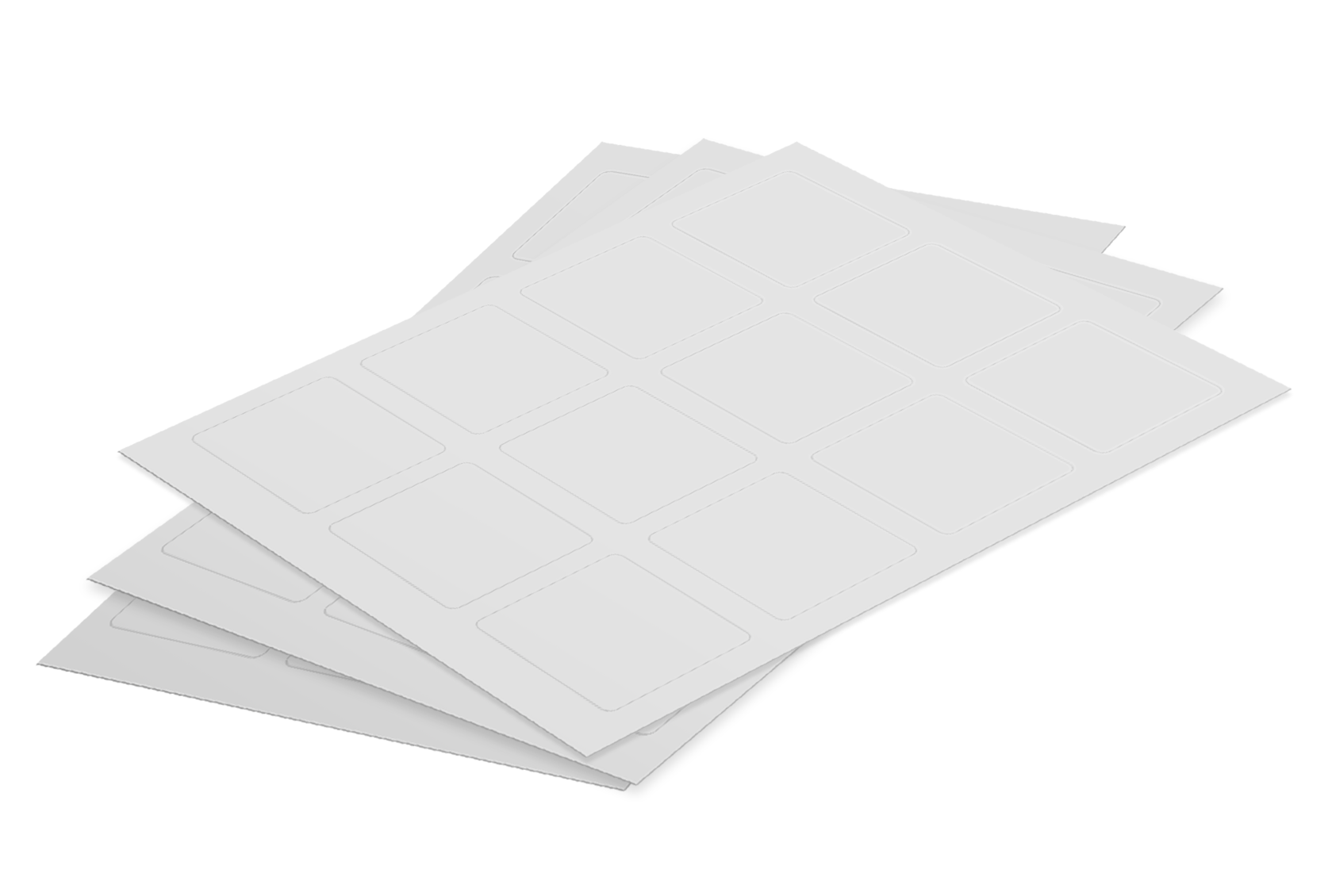Easy-peel Blank Labels for various surfaces.
Easy-peel Blank Labels for various surfaces.
Blog Article
Everything About Space Labels: The Ultimate Service for Your Custom-made Classifying Requirements
In the realm of personalized labeling, blank tags attract attention as an incredibly functional remedy that satisfies a wide selection of organization requirements. From product identification to compliance-driven applications in numerous industries, these unmarked glue products give an adaptable canvas for creative thinking and feature. With a comprehensive option of products, shapes, and sizes available, organizations can tailor their labeling techniques to boost both brand name identification and functional efficiency. The real possibility of empty tags frequently goes unacknowledged. What considerations should one bear in mind when exploring this personalized option?
Understanding Blank Labels
What do we imply by blank tags, and why are they substantial in various contexts? Blank tags are unprinted adhesive materials that can be personalized for a selection of applications across different sectors.
The ability to print on blank labels enables for tailored options that meet particular requirements. Businesses can use them for identifying items with distinct barcodes, active ingredients, or expiry dates, making certain compliance with guidelines and improving traceability. In retail, blank tags can assist in dynamic rates approaches, allowing for simple updates as market conditions alter.
In addition, blank tags are vital for people that call for customized remedies for home company, event planning, or DIY jobs - Blank Labels. The convenience of printing as needed encourages customers to create labels that show their particular requirements, promoting performance and quality. Generally, understanding blank tags highlights their relevance in assisting in efficient interaction and company throughout diverse applications
Sorts Of Blank Labels
Categorizing blank labels reveals a varied series of alternatives tailored to meet different requirements throughout numerous fields. These tags be available in different materials, forms, sizes, and adhesive types, enabling a customized technique to labeling.
First, the material utilized for blank tags can include paper, vinyl, polyester, and even fabric, each offering certain advantages such as durability, weather condition resistance, or eco-friendliness (Blank Labels). Paper labels are often utilized for interior applications, while plastic and polyester are better matched for exterior or high-moisture environments
In regards to sizes and shape, empty labels are offered in conventional formats like rectangles and circles, along with customized shapes to fit distinct demands. This versatility improves their applicability throughout various markets, from retail to manufacturing.
Sticky types also differ, with options consisting of irreversible, removable, and repositionable adhesives. Irreversible adhesives offer a solid bond for lasting use, while removable choices enable easy application and elimination without leaving deposit. Repositionable tags offer adaptability for adjustments throughout the labeling procedure.
Applications and Uses

In the healthcare field, blank labels are essential for classifying medicines, sampling containers, and medical equipment, making sure conformity with safety and regulative criteria. Similarly, schools make use of blank labels for arranging classroom materials, student projects, and event signage, cultivating an organized understanding setting.
Moreover, in the food and beverage market, blank labels allow companies to provide important details pertaining to components, dietary truths, and expiry dates, guaranteeing openness and conformity with food safety guidelines. Craft and hobby markets gain from blank tags too, enabling people to customize items or produce customized presents.
Advantages of Customized Labels
Custom tags supply significant benefits that improve branding, interaction, and effectiveness more throughout numerous applications. By allowing services to individualize their tags, custom-made options cultivate an unique brand name identification that stands out in a congested market. This distinction is important for attracting customers and developing brand commitment.

In addition, customized tags boost operational efficiency. By utilizing blank tags that can be printed on-demand, companies can rapidly adapt to altering inventory, seasonal promos, or governing demands. This flexibility minimizes waste and lowers costs related to overproduction or stockpiling obsolete labels.
Moreover, the ability to produce tags in different forms, sizes, and products ensures that they fulfill certain application requirements, whether for packaging, shipping, or organization. Inevitably, the benefits of customized labels not just improve brand discover this exposure however also simplify procedures and boost overall client experience, making them an invaluable device for any kind of company.
Tips for Creating Labels
When starting the layout of tags, think about the relevance of quality and visual charm to effectively connect your brand name's message. Begin by picking a suitable design that lines up with your product's dimensions and target market. A balanced layout guarantees that important info projects without frustrating the visitor.
Next, select a shade scheme that reflects your brand name identity. Ensure that your message contrasts well with the background for very easy readability.
Typography also plays a vital role in tag design. Select font styles that are clear and reverberate with your brand's character. Limit the variety of different font styles to keep a natural look.
Integrate high-quality pictures or graphics that improve your product's charm. Make certain that these visuals are relevant and expert, as they can make or damage the tag's performance.
Conclusion
In conclusion, empty tags serve as a functional and efficient solution for a myriad of labeling requirements throughout various markets. By making use of varied materials, shapes, and glue kinds, companies can develop tailored labels that satisfy specific demands.
Report this page